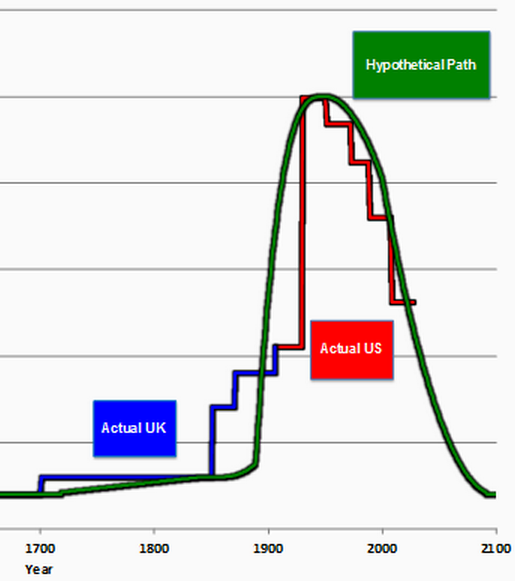Is growth over?
December 28, 2012

Growth in real GDP per capita, with actual (from .2 to 2.5 percent per year) and hypothetical paths (credit: Robert J. Gordon)
Global growth from the current industrial revolution (computers, the web, mobile phones) is slowing — especially in advanced-technology economies, and long-term economic growth may grind to a halt, Robert J. Gordon, Stanley G. Harris Professor in the Social Sciences and Professor of Economics at Northwestern University, has argued.
Now economist Paul Krugman counters in The New York Timesthat we are moving toward a world in which “Big Data — the use of huge databases of things like spoken conversations — apparently makes it possible for machines to perform tasks that even a few years ago were really only possible for people.
“Speech recognition is still imperfect, but vastly better than it was and improving rapidly, not because we’ve managed to emulate human understanding but because we’ve found data-intensive ways of interpreting speech in a very non-human way.”
However, he warns, while smart machines may make higher GDP possible, “they also reduce the demand for people — including smart people. So we could be looking at a society that grows ever richer, but in which all the gains in wealth accrue to whoever owns the robots.”
Interestingly, neither economist considers the effects of future exponential growth of hardware and software computation (and other tools) and the technological Singularity. — Ed.
No comments:
Post a Comment